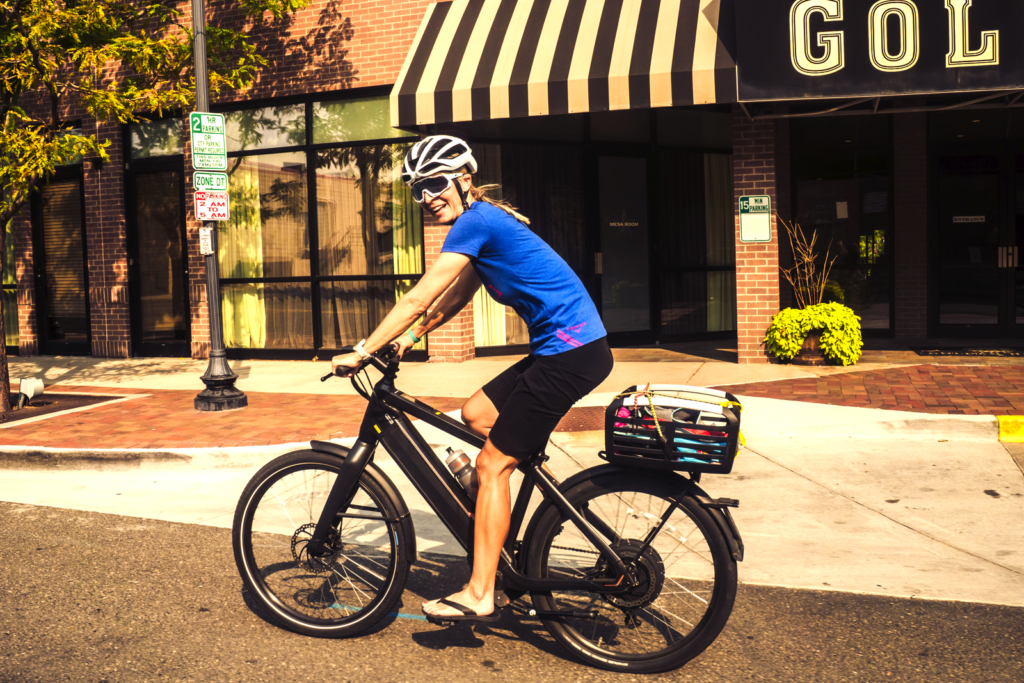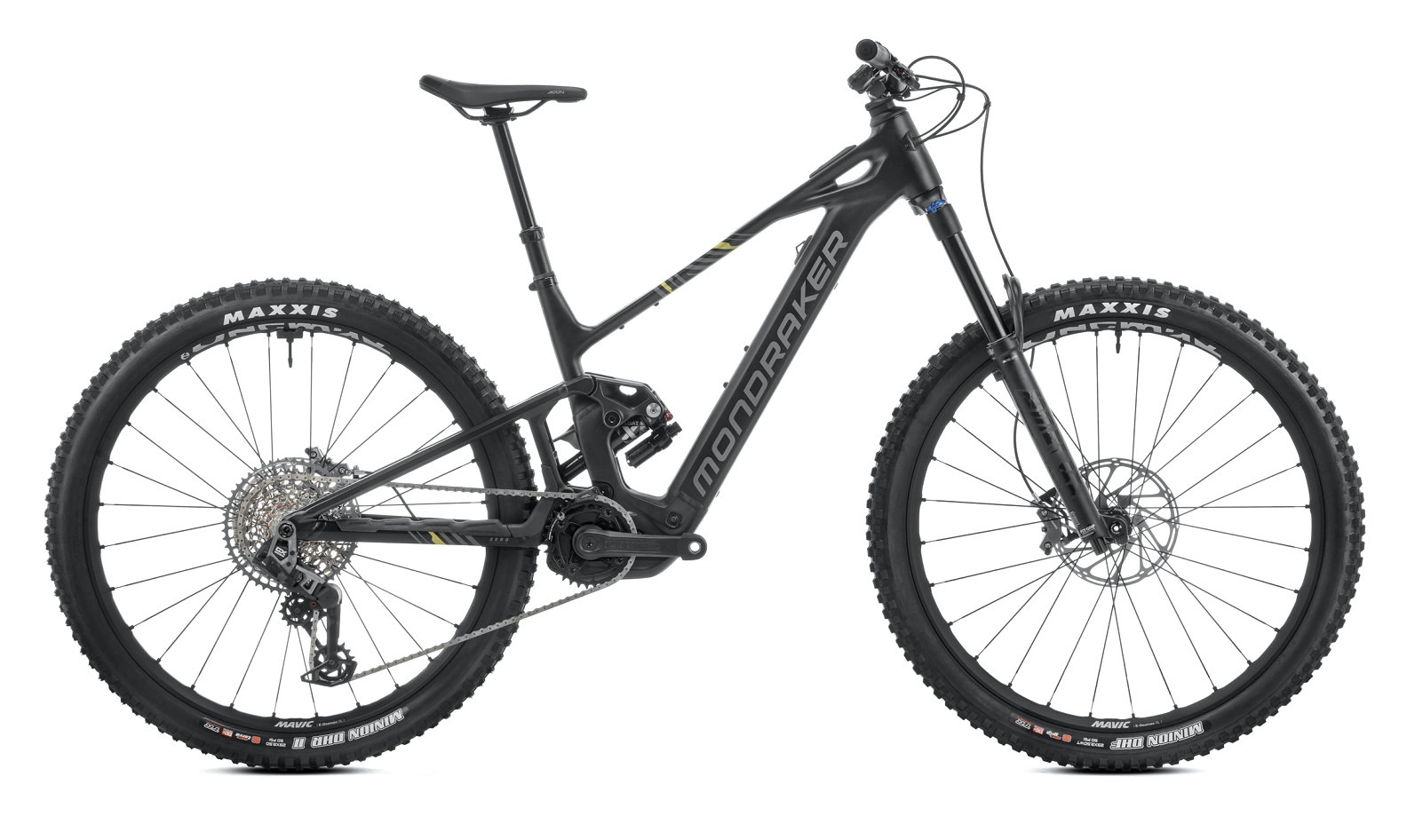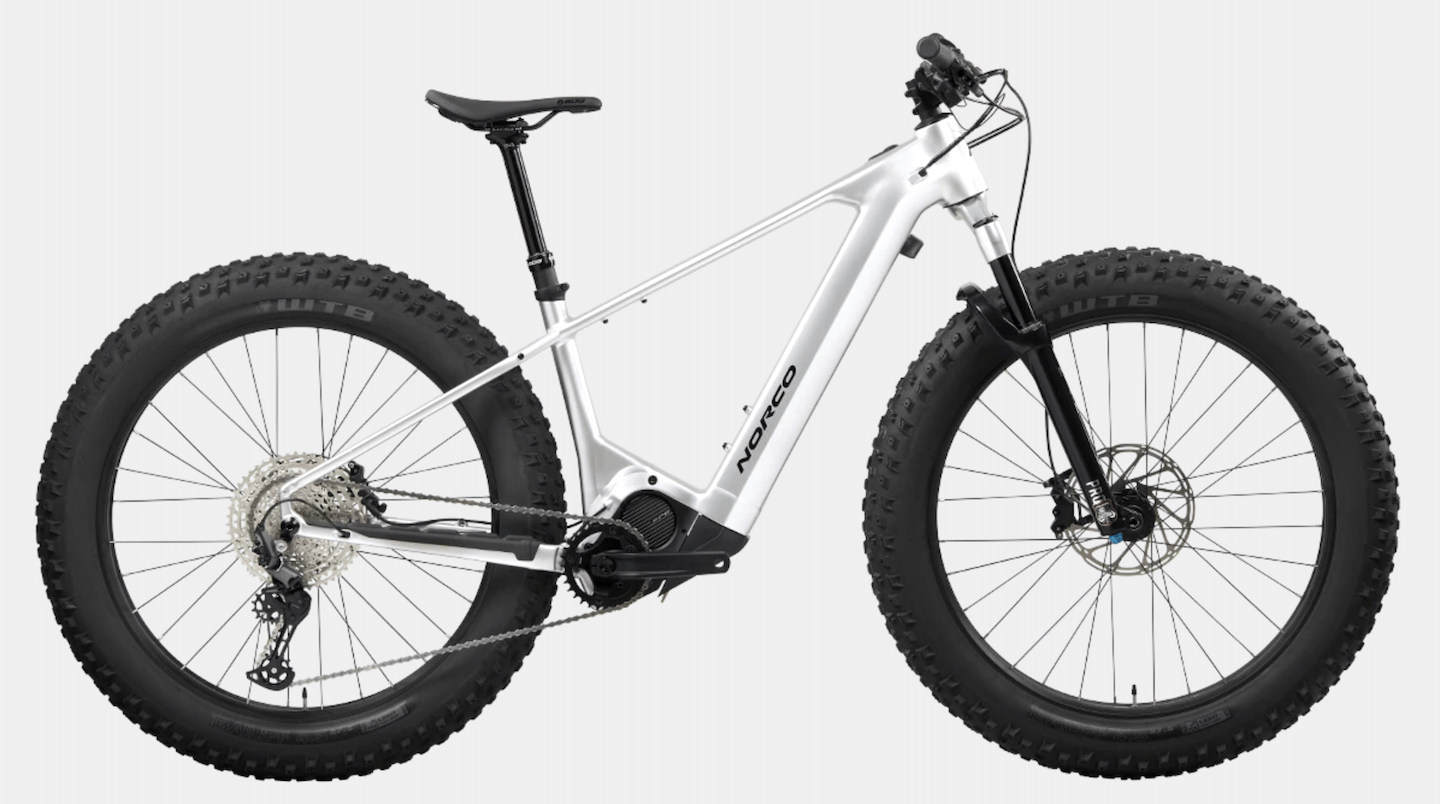January 14, 2022 - In early November last year, PeopleForBikes and Call2Recycle announced the launch of the U.S. bicycle industry’s first industry-wide e-bike battery recycling program (read more here). Call2Recycle is the largest and most reliable battery recycling program expert in the USA, and as e-bikes surge around the globe eBikes International caught with their CEO and President, Leo Raudys, who took over the reigns in January 2021.
Raudys is an author and a leading environmental and sustainability expert who worked as Environmental Director for a multinational technology company, as Senior Director Environmental Sustainability for Best Buy, and as the Deputy Commissioner at the Minnesota Pollution Control Agency.

Can you give us a brief history of Call2Recycle?
Leo Raudys: Call2Recycle was founded as a voluntary, industry-run initiative to keep heavy metals from rechargeable batteries out of the solid waste stream. Since 1994, Call2Recycle has grown from an idea by a group of five battery manufacturers to a pioneer in battery stewardship and collection and recycling logistics. Driven by its mission to maximize battery collection and recycling, Call2Recycle helps resolve the logistical challenges and regulatory intricacies for partners across the U.S. to ensure batteries are safely and responsibly managed when they reach their end-of-life, in accordance with state and national regulations.
With over 25 years of experience, Call2Recycle offers effective, safe, and efficient battery management, from rechargeable and primary consumer batteries to electric transport and electric vehicles – while ensuring compliance with local, state, and national regulations. Through its established network of more than 16,000 drop-off sites across the nation, including municipalities and retailers like Lowe’s, The Home Depot, and Staples, Call2Recycle has safely and responsibly recycled more than 140 million lbs of batteries across the U.S. (and about 73 million lbs. in Canada for a total of 213 million lbs.)
Call2Recycle’s dramatic growth in the last year is due to its expansion into e-mobility, strategically led by CEO and President Leo Raudys.
Who are your biggest customers?
LR: Call2Recycle maintains a diverse customer base, including Stewards, Collection Sites, and Consumers. Stewards include the more than 200 battery and/or product manufacturers – such as Dell, Duracell, Energizer, Panasonic, Stanley Black&Decker, etc. – who fund the Call2Recycle program to ensure that the batteries they are introducing into the marketplace are responsibly recycled when they reach their end of life. On behalf of these stewards, Call2Recycle fulfills their compliance obligations by operating a battery collection and recycling program in regulated States and nationally.
Collection sites are those collecting batteries for recycling through Call2Recycle, including p ublic-facing sites, such as the most prolific store-front retailers (The Home Depot, Lowe’s, Staples) to HHW/municipalities, and private entities, such as manufacturers, hospitals, military bases, and businesses.
How did your relationship with People for Bikes come about for e-bikes?
The planning for this program goes back to December 2019, when Call2Recycle participated in a discussion with PeopleForBikes members on the topic of battery recycling. Call2Recycle was eager to adapt our program to address the wave of new batteries powering the e-mobility revolution and the industry was seeking a solution to safely and responsibly manage e-bike batteries at their end-of- life.
Simultaneously, Call2Recycle began developing a similar program for the Canadian market that commenced January 2021. The early learning from what was being built for Canada became the foundation for earnest work sessions between PeopleForBikes and Call2Recycle in spring 2021.
Call2Recycle’s experience in battery collection and recycling logistics combined with PeopleForBikes’ knowledge of the e-bike industry and bike policy at all levels of government paved the way for a natural collaboration to establish the first-ever industrywide, voluntary e-bike battery recycling program, creating a safe, effective, and sustainable ecosystem and supply chain for e-bike batteries.
This first is not just for e-bikes but represents the first of any electric transportation sector to unite under a single battery recycling solution in North America. This initiative has garnered the commitment of more than 40 bike industry leaders from 20 PeopleForBikes member companies, who collaborated as a sustainability task force and electric bicycle committee to design the program with Call2Recycle. The success of this safe, responsible, and accessible e-bike battery recycling program is an enormous step in closing the gap from rider to recycling.

How does the program work for consumers and e-bike manufacturers?
LR: The e-bike battery recycling program is voluntary and funded by participating e-bike manufacturers and is designed to make the battery recycling program safe and seamless for both retailers and riders. These companies will pay into the industry fund based on the number of batteries placed into the market. The funds collected will be used to administer the e-bike battery collection and recycling program, including recycling kits, transportation and logistics, safety materials, and rider education.
Starting in February 2022, e-bike retailers can begin enrolling with Call2Recycle as a participating collection site. There is no cost to the retailer to become a collection site. Once registered, retail locations will be mapped out on both Call2Recycle’s and PeopleForBikes’ websites.
Riders can begin recycling their e-bike batteries in the summer of 2022. When ready, riders can return to the store-front where they purchased their e-bike or locate an e-bike battery drop-off site near them using Call2Recycle’s locator tool on our website, and simply bring in their batteries to be safely collected and recycled. A key part of any program is awareness, so Call2Recycle and PeopleForBikes will also launch a widespread rider awareness campaign in Fall 2022 to ensure riders are aware of the opportunity to participate and help keep their community and the supply chain cleaner and safer.
Call2Recycle provides retailers with everything they need to safely collect these e-bike batteries – including recycling kits, safety materials, and even retail employee training – and handles the management of battery collection, transportation, and recycling. Once a collection site receives a battery, they inspect it for signs of damage or end-of-life and place the battery in the correct battery recycling kit before shipping it to be recycled.
What’s the average life-span of an e-bike battery with normal care?
LR: The average life-span of an e-bike battery depends on several factors, including how often they are used (discharged) and recharged; however, based on industry averages, we assume the e-bike batteries will exit the market after 5 years.
How much time does it take on average to recycle an e-bike battery or any battery…?
LR: Battery recycling is a complex, multi-step process. The average time a battery is in the network – from collection to recycling can span from as short as several months to over a year. The battery recycling lifecycle includes collection, sorting/aggregation, first stage pre-processing (size reduction), separation, metals recovery and metals treatment (preparing the metals that are recovered for their downstream market).
The length of time needed to recycle a battery varies significantly based on the battery, the processor and the technology that is being used. First stage processing can be between several minutes and several hours depending on the technology. Separation typically takes only a few minutes. Metals recovery can be as short as several hours and can be as long as several days.

Tell us how you’re able to use every part of a battery to ensure full recycling.
LR: The next-gen battery processors we work with use hydrometallurgical technology to ensure batteries are adequately recycled and the circular economy can move forward. Roughly 95% percent of the battery material can be recovered in the recycling process. The exact number is highly dependent on the lithium-ion battery chemistry (LCO vs NMC vs LFP, etc), the form factor (cell vs battery pack), and the processor (the technology they use and what they recover).
The materials that are currently able to be recovered using the most advanced processes are the metals and plastics. This includes not only cathode materials like cobalt, nickel and manganese, but also the structural metals like steel and aluminum as well as the anode metal of lithium. Currently, the only material that cannot be recovered is graphite, although several battery recyclers are also working on recovering this. Materials recovered during the recycling process can be reclaimed and used in the manufacturing of new products. In 2022, it’s never been more apparent how crucial battery recycling is to our supply chain, or how necessary sustainable battery ecosystems are to reduce environmental harm.
Do you also work with battery producers to help facilitate the recycle process?
LR: Call2Recycle administers the entire program; however, it does not own or operate any sorting or recycling facilities. It contracts with a diverse network of approved service providers to perform the sorting and processing services. In many cases, Call2Recycle works directly with the battery producers to help facilitate the recycling of their batteries – whether through their distribution network or directly from their customers – and expects to support the e-bike brands with their program.
How many e-bike batteries do you estimate will get recycled per year going forward?
LR: Based on current commitments, in 2022 we expect to collect and recycle 15% of the e-bike batteries coming out of the market, growing to 65% in 2030. (ed. in 2020 an estimated 600,000 ebikes were sold in the USA).
How will the surge in e-bike production affect things?
LR: E-mobility, notably e-bikes, is perhaps the most visible example of the growing electrification of our economy. Industry analysts estimate that more than 12 million electric bikes will be sold in the United States between 2020 and 2030 alone.
Each of these e-bikes are powered by batteries that will need to be safely managed to prevent them from ending up in landfills. Our goal with this massive growth is to make disposal and recycling as seamless as we have for household batteries. That’s why we’re working so closely with PeopleForBikes and e-bike manufacturers to ease the transportation and logistical overhead for safely moving these materials at end-of-life. Together, we’ll create a sustainable ecosystem for e-bike batteries, ensuring e-bikes continue to play a key role in a climate-friendly future.
Will the same program be coming to Canada as well?
LR: Call2Recycle has been operating in Canada since 1997. Call2Recycle Canada expanded its service and recycling offerings to include an e-bike and e-scooter battery recycling program launched in January 2021. The early learnings from the Canadian program became the foundation for extensive work sessions between PeopleForBikes and Call2Recycle in early 2021. In October 2021, Call2Recycle also announced a collaboration with Canada’s Lithion Recycling, Inc. to provide a turnkey full-service management solution for the safe and efficient recycling of Electric Vehicle (EV) batteries across North America.
Anything you’d like to add?
LR: As e-mobility continues to expand, it’s important to reiterate that this program represents the first transportation sector united under one battery recycling solution. It’s important to recognize PeopleForBikes’ leadership to help establish this truly collaborative effort within the industry to help close the gap from ‘rider to recycling’.
Are you a rider yourself?
LR: Yes I ride an “acoustic” Specialized road bike, and an e-bike is on my wish list.
Thanks for your time and good luck with the project.
LR: Thanks as well.
















